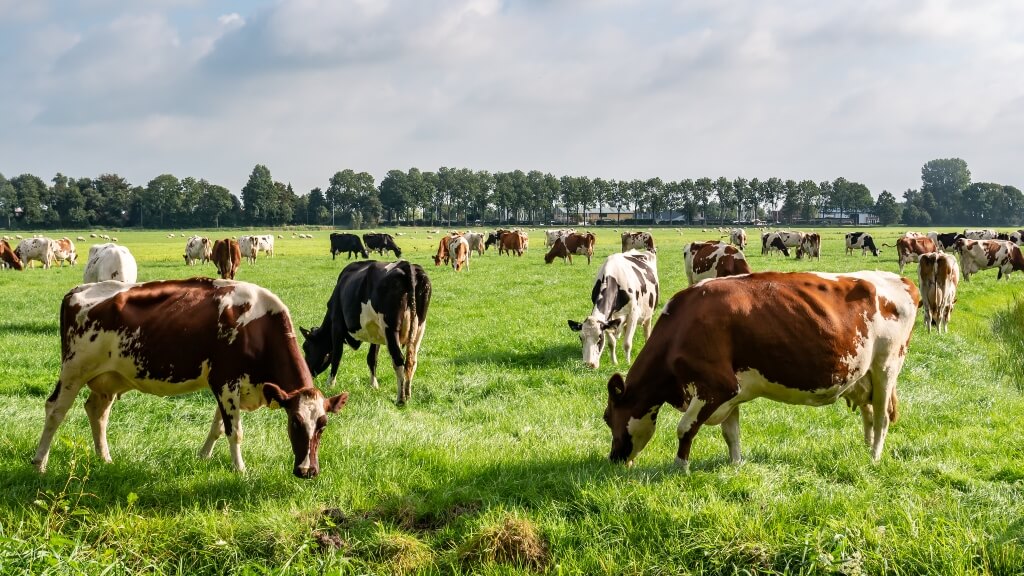Smart grazing with satellite technology
A platform uses satellite data to increase livestock farmers' productivity and efficiencyImproving livestock farmers' livelihoods is essential if the primary sector is to regain its appeal, and to maintain population levels in rural areas

Taking advantage of satellite technology to make the work of livestock farmers easier and more comfortable is the aim of one of the eight finalists of this year's SpinUOC, the annual programme to promote entrepreneurship organized by the Universitat Oberta de Catalunya (UOC).
Moofind, a platform for use by extensive livestock farmers with real-time geolocation, aims to reduce farmers' workloads and cut their costs. It uses a collar linked to the platform to track the livestock and to monitor basic aspects of the animals' health. It also uses data from the global satellite network to identify the best pastures.
According to its creator, Roger Sánchez Güell, a student on the Master's Degree in Financial Management at the UOC who lives in Germany, the aim behind the project is to move towards smart grazing.
Roger Sánchez presenting Moofind at the SpinUOC 2023
Making the rural world more attractive
The platform, which is in the development phase, is a response to a common problem in many European countries: the numbers of young people who want to be livestock farmers is in decline, and population levels are falling in the rural world. "Today's livestock farmers lead lives in which they have little time to spare, as they have to take care of a lot of paperwork and they often have to travel around to keep an eye on their animals," explained Sánchez Güell. "We aim to make their work easier so that they have more time, and to make the profession appealing to more young people and not just a vocational choice," he added.
Extensive livestock farming has declined in both Europe and Spain over the last 20 years. This makes solutions to reverse this trend a very important issue. A lack of time, high levels of competitiveness in the market, and high costs for livestock farmers – which have been even higher since the rise in prices of fertilizers, gas and wheat due to the war in Ukraine – are among the problems that affect this sector. That is why tools such as Moofind, which aim to increase efficiency and productivity with the consequent cost and time savings, are becoming increasingly necessary.
The grazing of the future
Moofind is easy to use, and is based on satellite technology. A collar placed on the animals, which is connected to global navigation satellite systems (GNSS), constantly tracks the location of the livestock and monitors baseline health indicators. This means farmers do not continuously have to travel around the pastures to check on their cows, as they can find out where they are at any time.
Meanwhile, information on the state of the nearest pastures is provided in real time by satellite systems observing Earth, and by the normalized difference vegetation index (NDVI). The farmers use their mobile phones to find out which fields are greener, their moisture levels, etc., and choose the best alternative. "This is very important, because in the past they only had their experience", explained Sánchez Güell, "which may no longer be enough due to climate change and extreme weather conditions. Our idea is to maintain the classic rotational grazing, but to take advantage of scientific knowledge and data."
This entrepreneur's ultimate goal is to offer farmers an all-in-one tool which they can use to find out the state of their livestock, organize their daily tasks and manage all animal-related issues (vaccination records, care, etc.).
In the long term, he believes that this technology will even make it possible to create virtual farms, where it will not be necessary to place boundaries on fields with fences. The cows will instead receive a vibration or a beep from the collar, which will keep them within defined fields. "This is a need that we may not come across as much in Europe, but it's a challenge in the vast expanses of South America", said Sánchez Güell.
In addition to being a finalist in the SpinUOC programme, organized by the Hubbik platform, Moofind has become an incubation project of the European Space Agency (ESA), where it has obtained more than €50,000, and it already has four potential clients in both Spain and Germany. Its founders are Roger Sánchez Güell, whose background is in Business Administration and Management and Law; Ankita Sen, an application programmer, and Jeet Diswas, a programmer.
This entrepreneurial project by the UOC contributes to achieving UN Sustainable Development Goals (SDG) 8 (Decent Work and Economic Growth), and 9 (Industry, Innovation and Infrastructure).
Press contact
Núria Bigas
nbigasf@uoc.edu
619 416 930
UOC R&I
The UOC's research and innovation (R&I) is helping overcome pressing challenges faced by global societies in the 21st century by studying interactions between technology and human & social sciences with a specific focus on the network society, e-learning and e-health.
Over 500 researchers and more than 50 research groups work in the UOC's seven faculties, its eLearning Research programme and its two research centres: the Internet Interdisciplinary Institute (IN3) and the eHealth Center (eHC).
The university also develops online learning innovations at its eLearning Innovation Center (eLinC), as well as UOC community entrepreneurship and knowledge transfer via the Hubbik platform.
Open knowledge and the goals of the United Nations 2030 Agenda for Sustainable Development serve as strategic pillars for the UOC's teaching, research and innovation. More information: research.uoc.edu.
Experts UOC
Press contact
-
Editorial department
